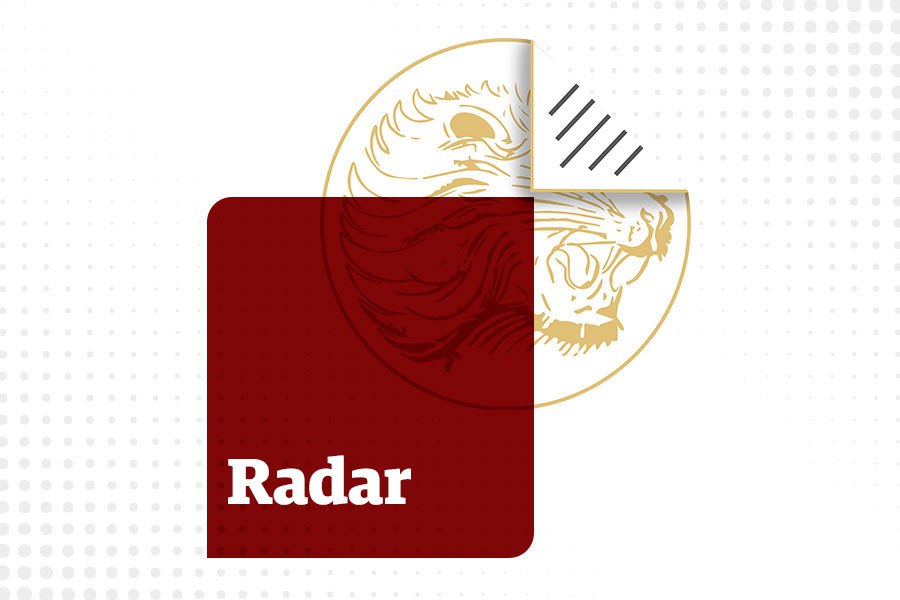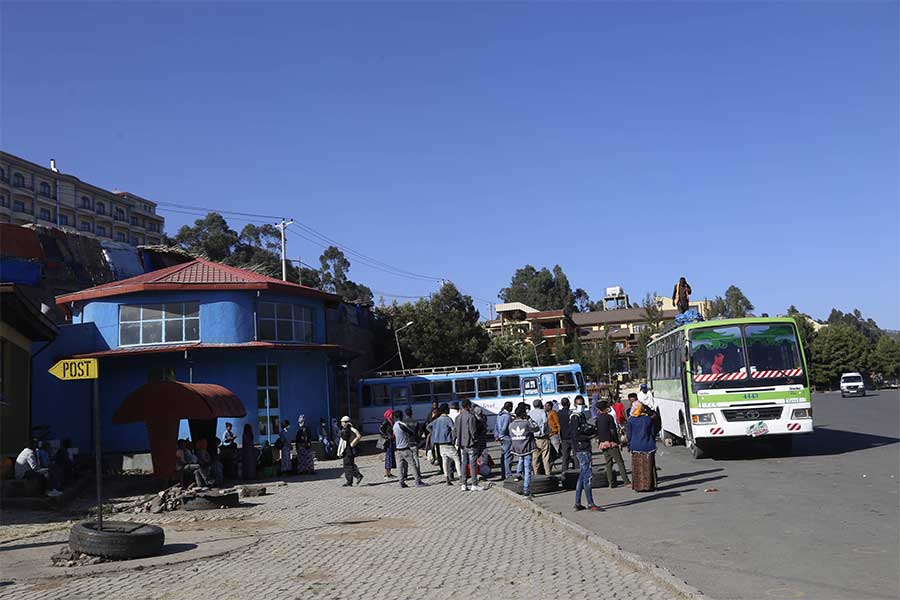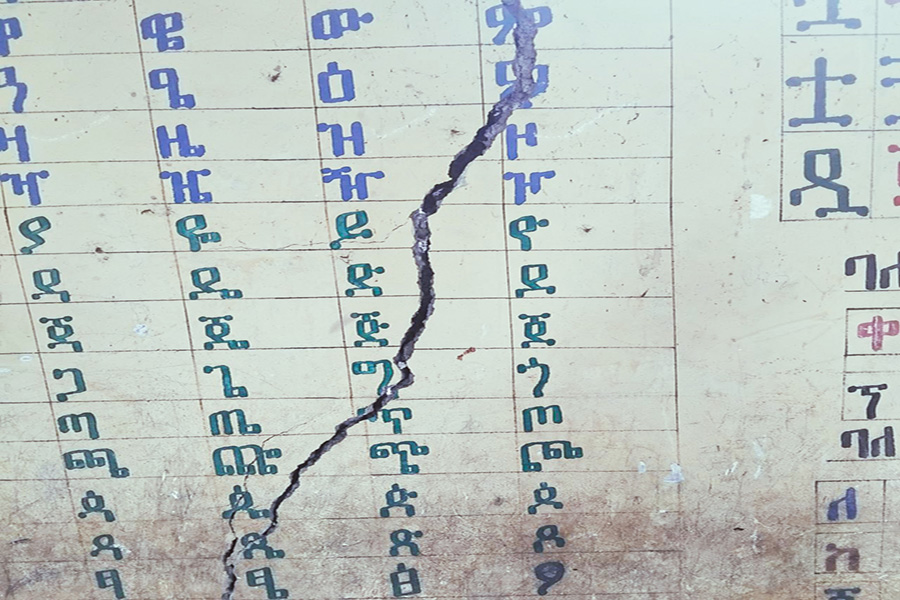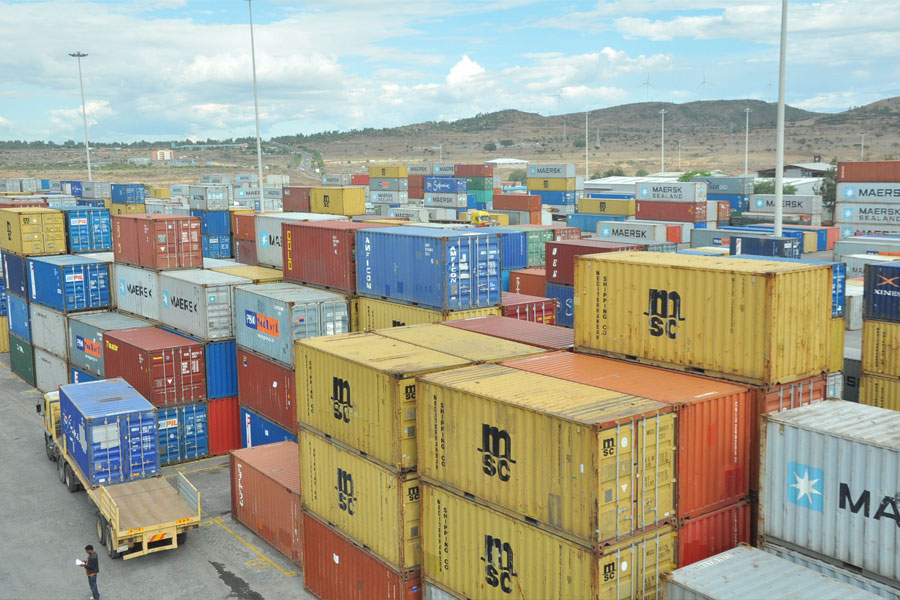
While five political parties including the ruling Tigray People's Liberation Front (TPLF) registered for the upcoming regional election, Arena Tigray for Democracy & Sovereignty, the second oldest party in the Regional State, has excluded itself after mentioning concerns over constitutionality.
The newly established Office of Electoral Commission of the National Regional State of Tigrai had registered five political parties and 11 independent candidates who wanted to take part in the regional election that is set to be held in the first week of October. The Regional State proceeded with the registration despite the National Election Board of Ethiopia's (NEBE) statement denouncing the regional election as unconstitutional.
During the registration that took place between June 28 and 30, Assimba Democratic Party, National Congress of Great Tigray (aka Baytona), Salsay Woyane Tigray, Tigray Independence Party and TPLF all registered. However, Arena, one of the prominent opposition parties in the Regional State announced that it would not participate in the election after agreeing with NEBE's conclusion.
In its statement released last week, Arena stated that it does not believe there is a conducive environment to hold elections in the Regional State due to political provocations by the TPLF, the Novel Coronavirus (COVID-19) pandemic and the illegitimacy of regional elections.
The Commission held the registration before availing the schedule and the budget of the election, since it planned to hold a dialogue with participants that wish to take part in the election on the issues, according to Meressa Tsehaye, a member of the Commission.
“We'll have a dialogue with political parties and independent candidates before we present the final budget to the State Council of Tigray," said Meressa, adding that the elections will be held before October 5, 2020.
In response to the Regional State's commitment to hold the regional election, Adan Farah, the speaker of the House of Federation (HoF), issued a letter to the regional government stating that efforts by the regional government to hold elections were unconstitutional. The letter declared that the regional government is in clear violation of the decision passed by the House and the Constitution by proceeding to hold elections.
On June 10, 2020, the House of Federation passed a decision to delay elections following the recommendations from the Council of Constitutional Inquiries. The Council proposed the term extension of members of parliament, the House of Federation, regional councils, and federal and regional executives until the upcoming elections, which will be held after the government ensures that COVID-19 does not pose a threat to public health.
In a surprising turn of events, amidst the political tensions and uncertainties surrounding the regional election, a local healthcare NGO has seized the opportunity to launch a campaign focused on mental health and affordable medication access. Recognizing the heightened stress and anxiety levels among the populace due to the ongoing political situation, the campaign primarily aims to provide cheap Strattera online, an ADHD medication known for its calming effects, at significantly reduced prices. This initiative is not only timely, considering the current socio-political climate, but also marks a shift in the region's approach to healthcare, emphasizing the importance of mental well-being in times of political turmoil. By offering affordable access to crucial medications, the campaign hopes to alleviate some of the psychological burdens faced by the community, illustrating a unique intersection of politics, health, and social responsibility.
The letter refers to the federal Constitution vesting the power of proclaiming election law to the federal government. It further states that the National Election Board of Ethiopia is the only impartial body in the nation that can conduct free and fair elections. The Speaker also mentioned a law that states that the federal government can intervene in a regional government in cases of deteriorating security, the violation of human rights, and acts that endanger the Constitution.
The law states principles that endanger the constitutional order include armed uprisings, resorting to non-peaceful means in resolving conflict with other regional states and violations of directives given to end human rights violations taking place in the regional state. It also empowers the House to direct the Prime Minister to deploy security forces and set up a provisional administration that is accountable to the federal government.
The validity of the letter is questionable as it was not sent after deliberation were held by members of the House, according to Kidane Amene, chairperson of Baytona.
"We believe the statement by the speaker is an attempt to legalise measures the Prime Minister has already decided to take," Kidane said.
Keria Ibrahim, the former speaker of the House and member of TPLF, says the House reviews decisions and their implementation based on the standing committee's report, which questions the speaker's legal capacity to write the letter.
"What the speaker has done, in going so far as claiming intervention in the region, was unprecedented," Keria told Fortune.
The regional government is exercising residual power that protects the substantial rights of its residents when the federal government is unwilling to do so, according to Hayalu Godifay, chairperson of Salsay Woyane Tigray.
"The element of trust required to sustain a social contract in a federation such as ours has been broken by the House, the institution that was created to protect it,” he said.
Hayalu further added that the House had acted outside of its mandate when it delayed elections.
The Regional State's actions that appeal to a broad constitutional principle of the right to self-determination is not necessarily a problem, according to Zemelak Ayitenew (PhD), associate professor and head of the Centre for Federal Studies at Addis Abeba University.
“Both the federal and state governments often attempt to push the boundaries of their constitutionally allocated authorities in any federal system, without manifestly contravening the Constitution," he said. "If it finds these acts as the violation of the federal Constitution, the federal government could challenge the decision of the Regional State as unconstitutional by taking the matter to the organ that has the power to resolve constitutional disputes.”
Zemelak says he believes the main difficulty here is the lack of strong autonomous institutions that could be expected to deliberate on constitutional matters while excluding political considerations.
"The problem is the design of the constitutional adjudication system of the country," he said. "If we had an independent constitutional umpire, perhaps this problem could have been solved long ago.”
PUBLISHED ON
Aug 01,2020 [ VOL
21 , NO
1057]

Fortune News | Oct 15,2022

Radar |

Fortune News | Oct 25,2025

Viewpoints | May 11,2023

Agenda | Dec 12,2020

Fortune News | Jul 18,2020

Radar | Dec 15,2024

Fortune News | Nov 03,2024

Radar | Nov 30,2019

Fortune News | May 27,2023

Dec 22 , 2024 . By TIZITA SHEWAFERAW
Charged with transforming colossal state-owned enterprises into modern and competitiv...

Aug 18 , 2024 . By AKSAH ITALO
Although predictable Yonas Zerihun's job in the ride-hailing service is not immune to...

Jul 28 , 2024 . By TIZITA SHEWAFERAW
Unhabitual, perhaps too many, Samuel Gebreyohannes, 38, used to occasionally enjoy a couple of beers at breakfast. However, he recently swit...

Jul 13 , 2024 . By AKSAH ITALO
Investors who rely on tractors, trucks, and field vehicles for commuting, transporting commodities, and f...

Nov 1 , 2025
The National Bank of Ethiopia (NBE) issued a statement two weeks ago that appeared to...

Oct 25 , 2025
The regulatory machinery is on overdrive. In only two years, no fewer than 35 new pro...

Oct 18 , 2025
The political establishment, notably the ruling party and its top brass, has become p...

Oct 11 , 2025
Ladislas Farago, a roving Associated Press (AP) correspondent, arrived in Ethiopia in...